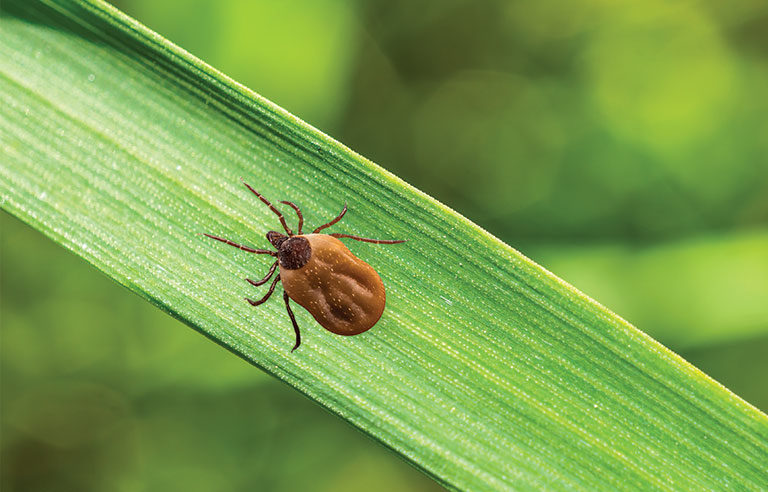Steep rise in insect-borne illnesses puts outdoor workers at risk: CDC

Atlanta — Disease cases stemming from mosquito, tick and flea bites more than tripled from 2004 to 2016 in the United States, and outdoor workers remain among those at risk, the Centers for Disease Control and Prevention states in a new report.
According to CDC, cases of domestic disease such as dengue, Zika, Lyme and plague totaled more than 640,000 in that time period. The agency identifies state and local health departments and vector control organizations as the primary defense, but notes that 84 percent of such organizations lack one or more of five core competencies:
- Routine mosquito surveillance via standardized trapping and species identification.
- Treatment decisions devised from surveillance data.
- Killing mosquitoes and ticks at every life stage.
- Routine vector control activities, including source reduction or environmental management.
- Pesticide resistance testing.
The risk for developing insect-borne diseases increases as commerce moves insects to different areas of the country and worldwide, the report states. Mosquitoes and ticks can transport germs, while infected travelers can introduce and spread them.
Symptoms of insect-borne disease include body, muscle and joint pain; fever; rash; headaches; stiff neck; fatigue; and paralysis.
CDC offers tips to prevent insect stings and bites. Among them:
- Wear clean, light-colored clothing that covers as much of the body as possible.
- Bathe daily while avoiding cologne, perfume and perfumed soaps, shampoos and deodorants.
- Maintain clean work areas.
- Remain calm around flying insects, as swatting may prompt them to sting.
- Perform daily skin and clothing checks for ticks, which tend to populate worksites near woods, bushes, high grass or leaf litter.
- Use insect repellent with 20 percent to 50 percent DEET on exposed skin and clothing, reapplying as necessary.
The report was published in the May edition of Vital Signs.
Post a comment to this article
Safety+Health welcomes comments that promote respectful dialogue. Please stay on topic. Comments that contain personal attacks, profanity or abusive language – or those aggressively promoting products or services – will be removed. We reserve the right to determine which comments violate our comment policy. (Anonymous comments are welcome; merely skip the “name” field in the comment box. An email address is required but will not be included with your comment.)

